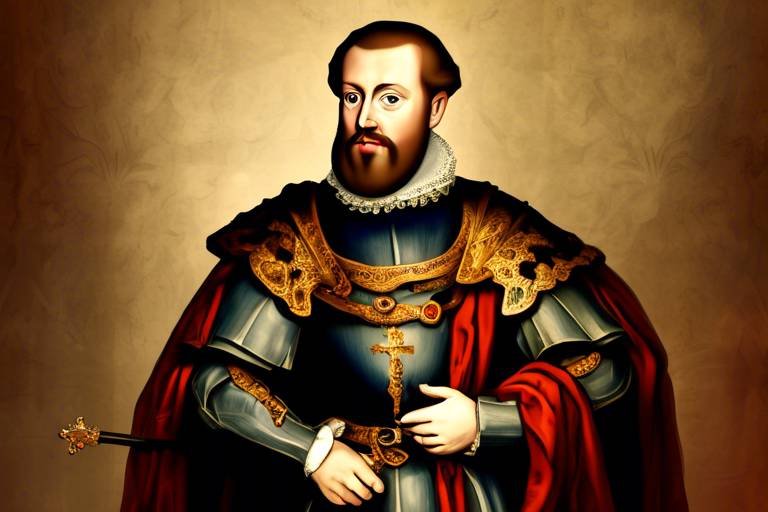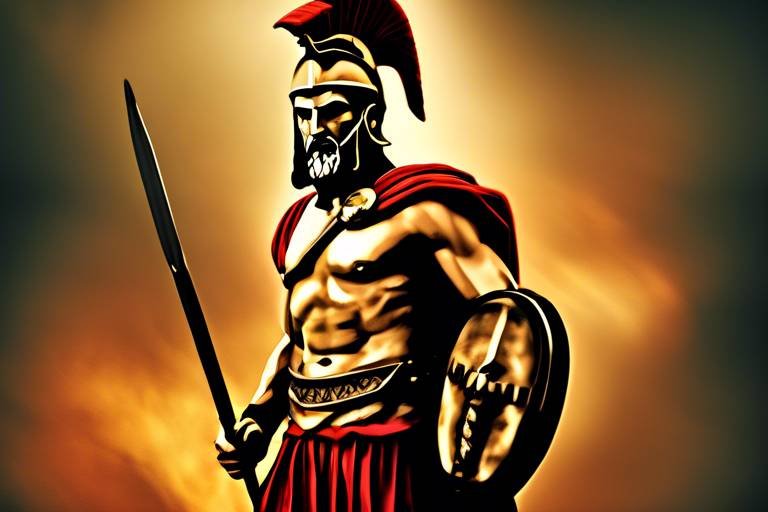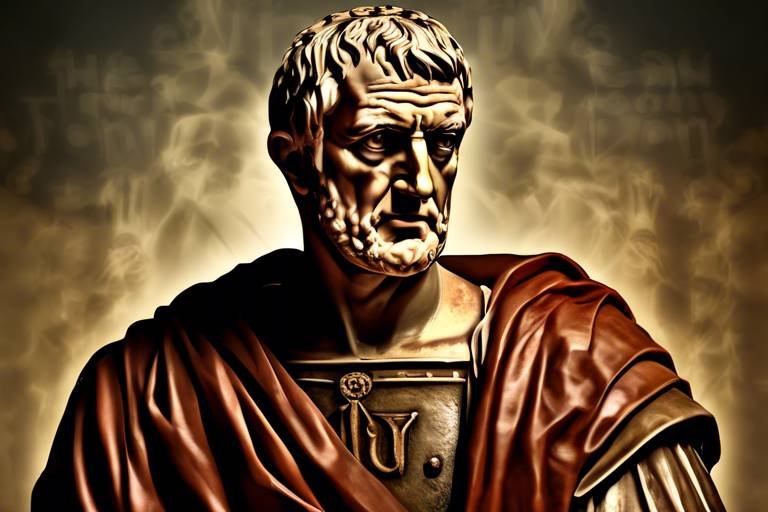Ferdinand Magellan: The First to Circumnavigate the Globe
Ferdinand Magellan, a name synonymous with exploration and adventure, holds the prestigious title of being the first person to circumnavigate the globe. His remarkable journey reshaped the way we view the world and opened up new horizons for future generations of explorers. Magellan's expedition was not just a voyage; it was a daring quest into the unknown, filled with challenges, triumphs, and ultimately tragedy.
Magellan's early life and background provide insights into the makings of a great explorer. Born in Portugal, he was no stranger to the allure of the sea and the mysteries it held. His upbringing and education instilled in him a deep curiosity and a thirst for discovery. These formative years set the stage for his later endeavors and fueled his ambition to chart uncharted waters.
The quest for a western route to the Spice Islands consumed Magellan's thoughts and efforts. Determined to find a passage that would bypass the treacherous overland routes, he embarked on a mission that would test his resolve and determination. Despite facing numerous obstacles and doubters, Magellan pressed on, driven by a vision of connecting the world through a new sea route.
Departing from Spain with the support of the Spanish crown, Magellan set sail on a historic journey that would change the course of history. His discovery of the eponymous Strait of Magellan was a pivotal moment, opening up a new path for future explorers to follow. The challenges of navigating uncharted waters and braving the elements were no match for Magellan's unwavering spirit.
The circumnavigation of the globe was a feat of unparalleled courage and perseverance. Magellan and his crew faced storms, mutinies, and encounters with indigenous peoples, yet they never wavered in their mission. Their determination to complete the journey and prove the naysayers wrong drove them forward, leading to the ultimate triumph of circumnavigating the globe.
Tragically, Magellan's life was cut short in the Philippines, but his legacy lived on in the annals of exploration. His daring expedition paved the way for future navigators and reshaped our understanding of the world. The impact of his circumnavigation reverberated through the centuries, inspiring countless others to follow in his footsteps.
Despite his achievements, Magellan was not without controversies and criticisms. Some questioned his leadership, decisions, and treatment of his crew, sparking debates that continue to this day. However, his role in the Age of Exploration remains undeniable, leaving a lasting mark on the history of human exploration.

Early Life and Background
Ferdinand Magellan, born in 1480 in Sabrosa, Portugal, belonged to a noble family with a strong maritime tradition. Growing up in a seafaring environment, Magellan developed a deep fascination for exploration and adventure from an early age. His education in navigation and seamanship laid the foundation for his future endeavors in the uncharted waters of the world.
During his early career in Portugal, Magellan honed his skills as a skilled navigator and gained valuable experience in the art of sailing. His interactions with seasoned sailors and explorers fueled his desire to seek new horizons and discover unknown lands. Influenced by the Age of Discovery, Magellan harbored dreams of finding a western route to the Spice Islands, known for their valuable spices coveted by European traders.
Driven by a relentless pursuit of knowledge and a thirst for exploration, Magellan's background and upbringing instilled in him a sense of curiosity and ambition that set him apart from his contemporaries. His exposure to the vast expanse of the ocean and the mysteries it held propelled him towards his ultimate goal of circumnavigating the globe, a feat that seemed unimaginable at the time.

Quest for a Western Route to the Spice Islands
Ferdinand Magellan's quest for a Western route to the Spice Islands was a daring and ambitious endeavor that would forever change the course of history. Motivated by the desire to find a more efficient sea passage to the lucrative Spice Islands, Magellan set out on a mission that would test his skills as a navigator and explorer.
Facing fierce competition from other European powers in the race for control of the spice trade, Magellan believed that a Western route through uncharted waters could provide a strategic advantage. His determination to find a passage that would bypass the established trade routes of the time led him to seek support for his expedition.
Securing funding and approval from the Spanish crown, Magellan assembled a fleet of ships and a crew of seasoned sailors to embark on his historic journey. The challenges he faced were immense, from navigating treacherous waters to dealing with the uncertainties of uncharted territories.
As Magellan and his crew ventured into the unknown, they encountered numerous obstacles that tested their resolve. From harsh weather conditions to hostile encounters with indigenous peoples, the journey was fraught with danger and uncertainty. Despite these challenges, Magellan remained steadfast in his pursuit of a Western route to the Spice Islands.
After months of exploration and perseverance, Magellan's expedition finally reached their destination, marking a significant milestone in the Age of Exploration. The discovery of the coveted sea passage, which would later be known as the Strait of Magellan, opened up new possibilities for trade and navigation in the region.
Magellan's quest for a Western route to the Spice Islands was not only a triumph of navigation but also a testament to the human spirit of exploration and discovery. His legacy lives on in the annals of history, inspiring future generations of explorers to push the boundaries of what is possible.

Departure from Spain
As Ferdinand Magellan set his sights on the ambitious goal of finding a western route to the Spice Islands, he knew that securing funding and approval from the Spanish crown was crucial for the success of his expedition. Departing from Spain in 1519, Magellan embarked on a journey that would not only test his navigational skills but also his ability to navigate the complex political landscape of the time.
With the support of King Charles I of Spain, Magellan assembled a fleet of five ships and a crew of over 200 men, setting sail from Seville towards the unknown waters of the Atlantic Ocean. The departure marked the beginning of a daring adventure that would push the boundaries of exploration and redefine the known world.
Amidst the backdrop of fierce competition among European powers for control of lucrative trade routes, Magellan's departure from Spain symbolized a bold move towards discovering new territories and establishing Spanish dominance in the Age of Exploration. The journey ahead was fraught with uncertainty, but Magellan's determination and vision propelled him forward, driven by the desire to uncover uncharted lands and secure the riches of the Spice Islands.

Discovery of the Strait of Magellan
When Ferdinand Magellan set out on his historic expedition, one of the most significant moments was the . This navigable passage, found in the southern tip of South America, connected the Atlantic and Pacific Oceans, opening up new possibilities for trade and exploration.
Imagine the awe and excitement that must have filled Magellan and his crew as they sailed through this previously unknown waterway, charting a course that would change the course of history. The challenges they faced were immense, from treacherous waters to harsh weather conditions, but their determination and skill prevailed.
The Strait of Magellan not only provided a crucial shortcut for future explorers seeking to reach the riches of the Spice Islands but also showcased the bravery and ingenuity of those who dared to venture into the unknown. It was a turning point in maritime navigation, a gateway to new horizons and endless possibilities.

Circumnavigation of the Globe
Embarking on the monumental journey of circumnavigating the globe, Ferdinand Magellan and his crew set sail into the vast unknown, determined to make history. The expedition faced numerous challenges as they navigated uncharted waters, battling fierce storms and enduring mutinies along the way. Despite these obstacles, Magellan's unwavering perseverance propelled the expedition forward, driven by the desire to achieve what was once thought impossible.
As they journeyed across the oceans, the crew encountered indigenous peoples in distant lands, exchanging knowledge and cultures in a time of exploration and discovery. Each encounter added to the richness of their experience, shaping their understanding of the world and its diverse inhabitants. The voyage was not just a physical exploration but also a cultural exchange, broadening horizons and fostering connections across continents.
One of the most significant moments of the expedition was the crossing of the Pacific Ocean, a vast expanse of water that tested the limits of their endurance and navigation skills. The crew's resilience in the face of this daunting challenge exemplified their determination to complete the historic voyage, pushing forward with courage and unity.
Throughout the circumnavigation, Magellan's leadership was put to the test as he navigated through treacherous waters and maintained order among his crew. His strategic decisions and unwavering commitment to the mission were essential in overcoming obstacles and reaching their ultimate goal of completing the first circumnavigation of the globe.
As they finally completed their journey, returning to Spain after three grueling years at sea, the expedition left a lasting legacy in the annals of exploration. Magellan's feat of circumnavigating the globe not only expanded geographical knowledge but also inspired future generations of explorers to push the boundaries of what was deemed achievable.

Death of Ferdinand Magellan
When it comes to the fateful end of Ferdinand Magellan's remarkable journey, tragedy struck in the Philippines. Despite his incredible achievements in navigating uncharted waters and circumnavigating the globe, Magellan's life was cut short during a skirmish with local tribes on the island of Mactan.
On April 27, 1521, Magellan and his crew landed on Mactan, hoping to convert the indigenous population to Christianity and establish alliances. However, they were met with resistance led by Chief Lapu-Lapu. In the ensuing battle, Magellan, outnumbered and outmatched, fought bravely but ultimately fell in combat.
The loss of Magellan was a significant blow to the expedition, as he was not only the leader but also the driving force behind the quest to find a western route to the Spice Islands. His death left the remaining crew in disarray, with Juan Sebastián Elcano taking command and eventually completing the historic circumnavigation.
Magellan's death serves as a poignant reminder of the risks and sacrifices involved in exploration and discovery. It also highlights the unpredictable nature of historical events, where the fate of an entire expedition can be altered in a single moment of conflict.

Legacy and Historical Significance
As we reflect on the legacy and historical significance of Ferdinand Magellan, it becomes evident that his expedition marked a pivotal moment in the history of exploration and navigation. Magellan's daring voyage, which resulted in the first circumnavigation of the globe, opened up new horizons and expanded the known boundaries of the world.
Magellan's achievement not only demonstrated the possibility of sailing around the world but also paved the way for future explorers to venture into uncharted territories with greater confidence. The knowledge gained from his expedition contributed significantly to the advancement of geographical understanding and maritime navigation.
Furthermore, Magellan's circumnavigation had a profound impact on global trade and cultural exchange. By establishing a direct sea route to the Spice Islands, he facilitated the transportation of valuable goods and fostered connections between distant regions. This development played a crucial role in shaping the interconnected world we live in today.
Despite facing numerous challenges and enduring hardships during his journey, Magellan's determination and vision have left an enduring legacy that continues to inspire adventurers and scholars alike. His name is etched in the annals of history as a pioneer who pushed the boundaries of exploration and reshaped our understanding of the world.

Controversies and Criticisms
Exploring the life of Ferdinand Magellan unveils a mix of admiration and controversy. While he is celebrated for his monumental achievement of circumnavigating the globe, his leadership style and decision-making have sparked debates among historians and scholars. One of the primary criticisms leveled against Magellan is his authoritarian approach towards his crew. Some accounts suggest that he ruled with an iron fist, leading to discontent and mutinous behavior among the sailors. The harsh conditions and strict discipline imposed by Magellan have been questioned, with some arguing that his methods were detrimental to morale and crew cohesion.
Another point of contention revolves around Magellan's treatment of indigenous peoples encountered during his expedition. Despite his role as an explorer, Magellan's interactions with native populations have been scrutinized for their exploitative nature. Accusations of cultural insensitivity and exploitation have been raised, highlighting the complex dynamics of early European exploration and colonization. Critics argue that Magellan's actions perpetuated a legacy of colonialism and exploitation that continues to impact global relationships today.
Furthermore, the controversial decision-making process of Magellan has been a subject of debate. From strategic navigational choices to diplomatic engagements with local rulers, his decisions have been analyzed through different lenses. Some view his actions as bold and visionary, while others criticize them as reckless and self-serving. The complexities of leadership and exploration in the 16th century present a nuanced picture of Magellan's legacy, inviting discussions on the ethics and consequences of his endeavors.
Despite the controversies surrounding his legacy, Ferdinand Magellan remains a central figure in the history of exploration and maritime navigation. His achievements, along with the criticisms and debates they have sparked, continue to shape our understanding of the Age of Exploration and its impact on global history.
Frequently Asked Questions
- Who was Ferdinand Magellan?
Ferdinand Magellan was a Portuguese explorer who led the first expedition to sail around the world in the 16th century. He is known for his ambitious voyage that aimed to find a western sea route to the Spice Islands.
- What was Magellan's major achievement?
Magellan's major achievement was the discovery of the navigable passage that connected the Atlantic and Pacific Oceans, known as the Strait of Magellan. This discovery allowed for the first circumnavigation of the globe.
- How did Magellan's expedition impact future voyages?
Magellan's expedition had a significant impact on future voyages and global understanding. It opened up new trade routes and expanded geographical knowledge, paving the way for further exploration and colonization.
- What controversies surround Magellan's legacy?
There are controversies and criticisms surrounding Magellan's leadership, decisions, and treatment of his crew. Some view him as a brave explorer, while others criticize his methods and actions during the expedition.



















